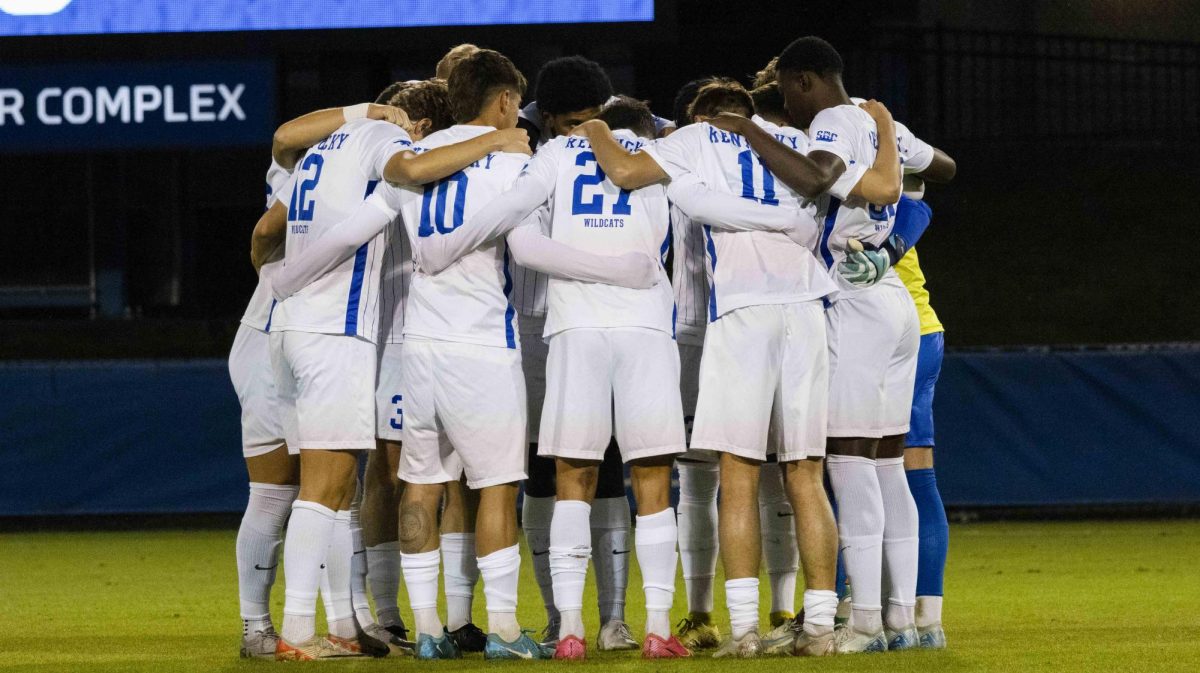Greek life fosters leadership, friendships
September 7, 2014
Greek life has always played a huge part in college culture. Because fraternities and sororities are so prevalent at major universities like UK, they are subjected to a fair amount of praise, as well as a fair amount of criticism. Everyone is entitled to his or her opinion, but I believe that many of the criticisms of Greek life are very misguided.
Some claim that Greek organizations are costly for members. While this claim has a degree of truth, it’s not as if that money goes to waste. It helps fund benefits for everyone in the organization, like social activities and leadership training.
Greek organizations are often criticized as being elitist, rejecting potential members that don’t fit in with the fraternity. I can state for a fact that this is not what happens in my fraternity, Delta Upsilon, as one of our core principles is the diffusion of liberal culture. We have members from all walks of life, and we celebrate our diversity. Also, it’s quite common for those participating in Greek rush to receive bids from several organizations, so ultimately the true choosing power is in the hands of the individual, not the fraternity or sorority.
While many acknowledge the fact that Greek organizations regularly participate in community service, they say that this can be accomplished on your own, which is true. But members of Greek organizations cherish teamwork. We believe that organized effort is the best way to aid one’s community.
Another criticism is that you can still make friends without going Greek. Obviously this is true, and I don’t think anyone is actually asserting the contrary. But the friendships molded during the experiences of a Greek organization are vastly different than your average friendship. I have forged several strong friendships with other members of my fraternity, and who’s to say I ever would have met them if I hadn’t given Greek life a shot?
In fact, a common claim from Greek life critics is that when you join a fraternity or sorority, you are “paying for friends.” This claim is ridiculous. People form friendships with those whom they spend time, especially if they have a common outlet in which to do so. Athletes form friendships with other athletes. Employees form friendships with their co-workers. Soldiers form friendships with their fellow soldiers. Greek organizations are just another outlet in which people can form friendships. Besides, Greek life not only allows you to develop friendships, it develops political, social and leadership skills. Just look at the facts and see.
According to data from an article in The Atlantic earlier this year, fraternity men make up 85 percent of U.S. Supreme Court justices since 1910, 63 percent of all U.S. presidential cabinet members since 1900, and, historically, 76 percent of U.S. Senators, 85 percent of Fortune 500 executives, and 71 percent of the men in “Who’s Who in America.”
Former “frat boys” even dominate the highest position in the country. Eighteen U.S. presidents since 1877, about 70 percent, were in fraternities. These figures are quite impressive considering that just over eight percent of college men are in fraternities. So regardless of what critics have to say, the numbers seem to suggest that Greek organizations have been doing something right.
Now let me also say that Greek life isn’t for everyone, and there is nothing wrong with that. But those who do choose the Greek path should never allow their aspirations to be dampened by faulty criticisms.





















































































































































